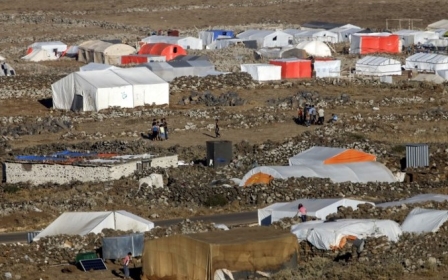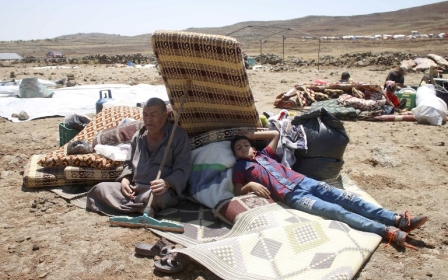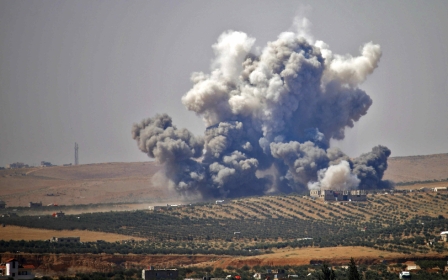South Syrian rebels to lay down arms as Assad seizes crossing
South Syrian rebels said they had agreed on Friday to lay down arms in a Russian-brokered deal that appeared to surrender Daraa province to the government in another major victory for President Bashar al-Assad.
The Syrian government also recovered the crucial Nassib border crossing with Jordan, held by rebels for three years, state media reported, after a fierce assault backed by Russian air strikes in rebel-held territory along the frontier.
Daraa province encompasses most of the area held by rebels in the southwest, one of their last remaining strongholds in Syria. Assad is also aiming to recover control of rebel-held areas of Quneitra province at the frontier with the Israeli-occupied Golan Heights.
Government advances in Daraa in a two-week offensive had brought large parts of the province back under state control and caused a massive human exodus as hundreds of thousands of people fled.
Rebel sources said the deal brokered by Russia would allow civilians to return to their villages and towns with Moscow guaranteeing their protection.
Russian guarantees will also be extended to rebel fighters who wish to "settle their status" with the government - a process by which former fighters accept to live under state rule again, the sources said.
Rebels who did not wish to come back under Assad's rule would leave for the opposition stronghold in northwest Syria, they said.
Several witnesses along the Jordan border fence with Syria said they spotted armoured vehicles and a tank with a Russian flag heading to the Nassib crossing, an important trade artery.
'Surrender'
Ahmad Abazid, a political analyst from Daraa city, played down the significance of the advances of pro-government forces.
“They didn't win militarily, it was only the agreements with rebels in some areas that made it look that way,” Abazid told Middle East Eye, pointing to failed attempts to take a key air base in the area.
According to Abazid, the terms offered by the Russians, negotiating on behalf of their ally the Syrian government, were poor.
Civilians and rebels in the south may be easily captured by government forces in the future "without protection or witnesses," he explained.
“The Russian deal is similar to the others in areas of Aleppo or Ghouta. They want the rebels to surrender and give up their weapons and territory back to the regime,” Abazid said.
He added that the loss of Daraa to government forces will "significantly" impact the negotiation process to end the conflict, as the government gains the upper hand.
“People are disappointed by the international response,” Abazid said.
Adnan al-Shami, a civilian displaced near the border with Jordan, also voiced his disappointment in the ceasefire deal.
"They are trying to impose conditions of surrender on all of us," he told MEE.
Israeli strikes
A commander in a regional military alliance that backs Assad said an Israeli air strike had hit a Syrian village in Quneitra on Friday, causing no casualties.
Israel's military said it had hit a Syrian army post in that area following mortar fire from the region.
The mortar fire, which struck near Israel's security fence, was "part of the internal fighting between the government and the rebels in Syria", it said, without giving details on the retaliation.
The Israel army was "not involved in the internal fighting in Syria" but "it will continue to implement the 1974 Separation of Forces Agreement that includes maintaining the buffer zone", the military said in a statement.
An Israeli army spokeswoman would not specify if the post targeted belonged to the Syrian government or rebel forces.
New MEE newsletter: Jerusalem Dispatch
Sign up to get the latest insights and analysis on Israel-Palestine, alongside Turkey Unpacked and other MEE newsletters
Middle East Eye delivers independent and unrivalled coverage and analysis of the Middle East, North Africa and beyond. To learn more about republishing this content and the associated fees, please fill out this form. More about MEE can be found here.




